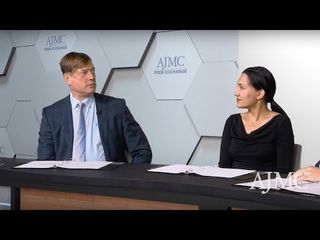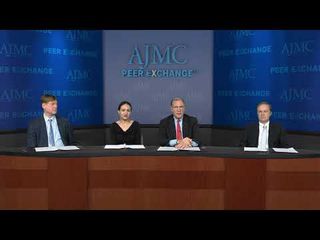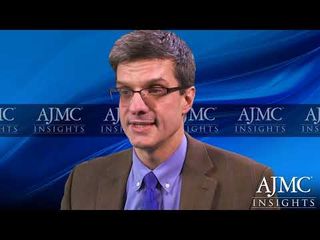
Clinical
Latest News
Latest Videos

More News

Results of a new study published in the American Journal of Transplantation has found that international guidelines lack standardization on screening recommendations for solid organ transplant recipients.

Roche has announced that phase 3 results from the OAK study evaluating atezolizumab (Tecentriq) indicate improved overall survival compared with docetaxel in patients with locally advanced or metastatic non—small cell lung cancer.

What we're reading, September 1, 2016: new, stronger warnings on opioid labels; why competition hasn't curbed drug price hikes; and Zika funding bill likely won't pass the Senate.

While the majority of the adults infected with hepatitis C virus are baby boomers-people between the ages of 51 and 71 years-Alaska is seeing a large spike in infection rates among young adults.

Erelzi, developed by Sandoz has been approved for use against a number of inflammatory conditions, including rheumatoid arthritis and plaque psoriasis.

A new study on the racial differences in patient experience revealed black patients reported better experience than whites do, even though they were less likely to recommend hospitals.

Scientists at Brigham and Women’s Hospital are evaluating the depth of a trained radiologist’s eye to detect abnormalities on a mammogram, in an attempt to improve screening and earlier detection of disease.

What We're Reading, August 30, 2016: the Justice Department is investigating police treatment of the mentally ill; researchers identify overtreatment based on imaging procedures; and 2 drug compounds may prevent the Zika virus from replicating in the body.

Researchers at Cancer Research UK have developed a strategy to make pancreatic cancer more responsive to chemotherapy and radiation.

In the August issue of Evidence-Based Oncology, The Samfund's Samantha Watson, MBA, and Michelle Landwehr, MPH, outline how young adult cancer survivors are disproportionately affected by treatment costs. This infographic breaks down the vicious cycle these patients get stuck in.

A vaccine, under development in Cuba for more than 2 decades, has shown potential to improve survival in patients with advanced non-small cell lung cancer.

Not only are patients with prediabetes benefiting from Omada Health’s Prevent program, Omada benefits as well by learning from the enrolled patients about how to better serve the Medicaid population, Mike Payne, MBA, MSci, chief healthcare development officer at Omada Health.

High-density lipoprotein (HDL) has become known as “good cholesterol” because it helps reduce risk of stroke and heart attack. However, new research found that both high and low levels of HDL could increase a person’s risk of premature death.

Advances in genetic technologies have a great potential to be used to advance treatments, especially through personalized medicine. However, there are concerns that disadvantaged groups do not have access to these advances.

Margaret E. O'Kane has been making lasting impacts on healthcare quality measurement for years. But when she founded the National Committee for Quality Assurance, the organization was sometimes underestimated and not taken seriously.

What we're reading, August 26, 2016: the middle class is burdened with increasing healthcare costs; how much do voters need to know about presidential candidates' health; and honoring the end-of-life wishes of patients with dementia.

The FDA has several projects under its wings that can improve the regulatory aspect of drug development and healthcare overall.

Based on the results of the MINDACT trial, investigators have concluded that chemotherapy is unnecessary in women with early-stage breast cancer who have a high clinical and low genomic risk of disease recurrence.

What we're reading, August 25, 2016: Hillary Clinton proposes fund for public health crises; hospitals that treated victims of the Orlando Pulse nightclub shooting will not bill survivors; and 1 in 4 people admit to using leftover antibiotics.

Research at Massachusetts General Hospital has provided vital leads that can explain drug resistance observed in breast cancer.

A majority of hospitals that may be required to participate in the new Medicare cardiac bundled payment models would not experience losses or gains over $500,000 per year, according to a recent analysis by Avalere Health.

A new study by researchers at the Institute of Cancer Research has substantiated that hormone replacement using estrogen and progesterone increases the risk of breast cancer, especially with longer use.

A new report by the Harvey L. Neiman Health Policy Institute recommends a bundled payment model for breast cancer screening, with the objective of improved patient care and a more efficient use of healthcare resources.

Researchers from Tufts Medical Center analyzed findings from 26 studies to determine how drug exclusion policies affect patients and healthcare costs.

Factors such as insurance status and being married are significant determinants of survival compared with race/ethnicity, in patients with multiple myeloma who are less than 65 years of age.














